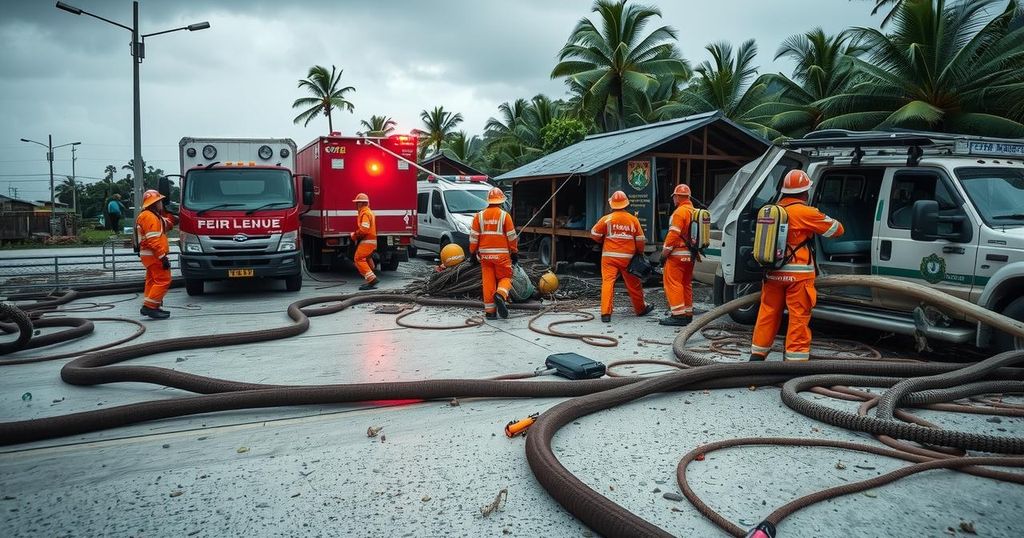Cyclone Chido Devastates Mayotte, Prompting Urgent French Aid Response

France is providing urgent assistance to Mayotte after Cyclone Chido caused widespread devastation, with fears of hundreds to thousands of fatalities. Rescue efforts are underway, hampered by damaged infrastructure, as officials worry about the true extent of casualties, particularly in impoverished areas. Neighboring regions are also preparing for further impacts as the cyclone continues its trajectory across southern Africa.
On Monday, France mobilized aid efforts by ship and military aircraft to its overseas territory of Mayotte, located in the Indian Ocean, following devastating damage from Cyclone Chido. The storm, described as the worst in nearly a century, struck the island on Saturday, raising fears that hundreds, possibly thousands, may have perished. As rescue operations commenced, numerous personnel and supplies were dispatched from France and the nearby French territory of Reunion to assist those affected.
Despite an official death toll of 14 reported on Monday, Mayotte authorities believe the numbers to be significantly higher, with estimates indicating several hundred to thousands of fatalities. French Interior Minister Bruno Retailleau, who visited the impacted capital of Mamoudzou, stated, “It will take days and days to establish the human toll.” Over 800 additional rescue personnel are anticipated to arrive to aid in recovery efforts as teams assess the widespread damage.
The cyclone inflicted severe devastation upon Mayotte’s densely populated neighborhoods, particularly affecting the slums characterized by precarious housing. Critical infrastructure, including the main airport and hospital, sustained considerable damage, complicating the humanitarian response as the airport’s operational capabilities are limited to military aircraft only.
Mayotte, regarded as the poorest department of France and a target for migration due to its superior living standards, faces unique challenges in casualty accounting as many victims may not be officially recorded. The local prefect acknowledged that the cyclone resulted in profound destruction, and many potential casualties might remain unreported due to cultural practices surrounding burial within 24 hours of death.
Cyclone Chido, which brought winds exceeding 220 kilometers per hour (136 mph), also impacted regions in Comoros and Madagascar and subsequently made landfall in Mozambique, where further casualties have been reported. As the cyclone continues its eastern path, neighboring countries such as Malawi and Zimbabwe are preparing for possible flooding and evacuations. This event underscores the increasing frequency and severity of cyclones affecting southern Africa during the cyclone season, which typically runs from December to March.
Cyclone Chido represents a significant meteorological event in the context of southern Africa, with its impact felt profoundly on the vulnerable islands and coastal regions. Mayotte, situated in the Indian Ocean, is recognized for its economic challenges, further exacerbating the humanitarian crisis following such a natural disaster. The cyclone season in this region typically sees a spike in severe weather, with past events like Cyclone Idai claiming many lives and inflicting widespread destruction. This highlights the pressing need for effective disaster response mechanisms in vulnerable territories.
The catastrophic aftermath of Cyclone Chido in Mayotte has prompted an urgent humanitarian response from France, as fears of high casualty rates loom amid estimations that hundreds, if not thousands, may have died. The ongoing recovery efforts, hampered by damaged infrastructure and socioeconomic factors, underscore the challenges faced in adequately addressing the consequences of such natural disasters in impoverished regions. The situation encapsulates broader issues of preparedness and resilience against increasingly frequent severe weather events.
Original Source: ny1.com








